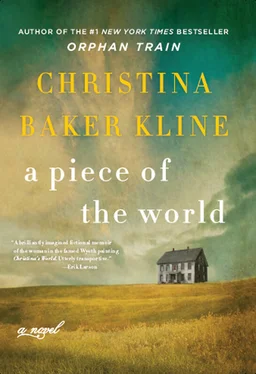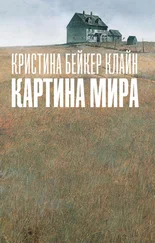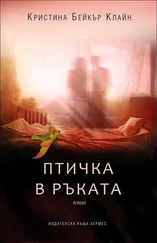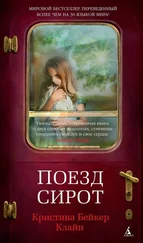“I don’t know about that,” I admit. “Our ancestors came from Massachusetts. Nearly two hundred years ago. Three men, in the middle of winter.”
“Where in Massachusetts?”
“Salem.”
“Why’d they come up?”
“My grandmother said they were trying to escape the taint of association with their relative John Hathorne. He was chief justice of the witch trials. When they got to Maine they dropped the ‘e’ at the end of the name.”
“To obscure the connection?”
I shrug. “Presumably.”
“I’m remembering this now,” he says. “Nathaniel Hawthorne left Salem too, and also changed the spelling of the name. But a lot of his stories are reworkings of his own family history. Your family history, I suppose. Moral allegories about people determined to root out wickedness in others while denying it in themselves.”
“Actually,” I tell him, “there’s a legend that as one of the condemned witches stood at the scaffold, waiting for the noose, she uttered a curse: ‘May God take revenge on the family of John Hathorne.’”
“So your family is cursed!” he says with delight.
“Maybe. Who knows? My grandmother used to say that those Hathorn men brought the witches with them from Salem. She kept the door open between the kitchen and the shed for the witches to come and go.”
Looking around the Shell Room, he says, “What do you think? Is it true?”
“I’ve never seen any,” I tell him. “But I keep the door open too.”
OVER THE YEARS, certain stories in the history of a family take hold. They’re passed from generation to generation, gaining substance and meaning along the way. You have to learn to sift through them, separating fact from conjecture, the likely from the implausible.
Here is what I know: Sometimes the least believable stories are the true ones.
1896–1900
My mother drapes a wrung-out cloth across my forehead. Cold water trickles down my temple onto the pillow, and I turn my head to smear it off. I gaze up into her gray eyes, narrowed in concern, a vertical line between them. Small lines around her puckered lips. I look over at my brother Alvaro standing beside her, two years old, eyes wide and solemn.
She pours water from a white teapot into a glass. “Drink, Christina.”
“Smile at her, Katie,” my grandmother Tryphena tells her. “Fear is a contagion.” She leads Alvaro out of the room, and my mother reaches for my hand, smiling with only her mouth.
I am three years old.
My bones ache. When I close my eyes, I feel like I’m falling. It’s not an altogether unpleasant sensation, like sinking into water. Colors behind my eyelids, purple and rust. My face so hot that my mother’s hand on my cheek feels icy. I take a deep breath, inhaling the smells of wood smoke and baking bread, and I drift. The house creaks and shifts. Snoring in another room. The ache in my bones drives me back to the surface. When I open my eyes, I can’t see anything, but I can tell my mother is gone. I’m so cold it feels like I’ve never been warm, my teeth chattering loudly in the quiet. I hear myself whimpering, and it’s as if the sound is coming from someone else. I don’t know how long I’ve been making this noise, but it soothes me, a distraction from the pain.
The covers lift. My grandmother says, “There, Christina, hush. I’m here.” She slides into bed beside me in her thick flannel nightgown and pulls me toward her. I settle into the curve of her legs, her bosom pillowy behind my head, her soft fleshy arm under my neck. She rubs my cold arms, and I fall asleep in a warm cocoon smelling of talcum powder and linseed oil and baking soda.
SINCE I CAN remember I’ve called my grandmother Mamey. It’s the name of a tree that grows in the West Indies, where she went with my grandfather, Captain Sam Hathorn, on one of their many excursions. The mamey tree has a short, thick trunk and only a few large limbs and pointy green leaves, with white flowers at the ends of the branches, like hands. It blooms all year long, and its fruit ripens at different times. When my grandparents spent several months on the island of St. Lucia, my grandmother made jam out of the fruit, which tastes like an overripe raspberry. “The riper it gets, the sweeter it gets. Like me,” she said. “Don’t call me Granny. Mamey suits me just fine.”
Sometimes I find her sitting alone, gazing out the window in the Shell Room, our front parlor, where we display the treasures that six generations of sailors brought home in sea chests from their voyages around the world. I know she’s pining for my grandfather, who died in this house a year before I was born. “It is a terrible thing to find the love of your life, Christina,” she says. “You know too well what you’re missing when it’s gone.”
“You have us,” I say.
“I loved your grandfather more than all the shells in the Shell Room,” she says. “More than all the blades of grass in the field.”
MY GRANDFATHER, LIKE his father and grandfather before him, began his life on the sea as a cabin boy and became a ship captain. After marrying my grandmother, he took her with him on his travels, transporting ice from Maine to the Philippines, Australia, Panama, the Virgin Islands, and filling the ship for the return trip with brandy, sugar, spices, and rum. Her stories of their exotic travels have become family legend. She traveled with him for decades, even bringing along their children, three boys and a girl, until, at the height of the Civil War, he insisted they stay home. Confederate privateers were prowling up and down the East Coast like marauding pirates, and no ship was immune.
But my grandfather’s caution could not keep his family safe: all three of his boys died young. One succumbed to scarlet fever; his four-year-old namesake, Sammy, drowned one October when Captain Sam was at sea. My grandmother could not bring herself to break the news until March. “Our beloved little boy is no more on earth,” she wrote. “While I write, I’m almost blind with tears. No one saw him fall but the little boy who ran to tell his mother. The vital spark has fled. Dear husband, you can better imagine my grief than I can describe to you.” Fourteen years later, their teenaged son, Alvaro, working as a seaman on a schooner off the coast of Cape Cod, was swept overboard in a storm. News of his death came by telegram, blunt and impersonal. His body was never found. Alvaro’s sea chest arrived on Hathorn Point weeks later, its top intricately carved by his hand. My grandmother, disconsolate, spent hours tracing the outlines with her fingertips, damsels in hoopskirts with revealing décolletage.
MY BEDROOM IS still and bright. Light filters through the lace curtains Mamey crocheted, making intricate shapes on the floor. Dust mites float in slow motion. Stretching out in the bed, I lift my arms from under the sheet. No pain. I’m afraid to move my legs. Afraid to hope that I’m better.
My brother Alvaro swings into the room, hanging on to the doorknob. He stares at me blankly, then shouts, to no one in particular, “Christie’s awake!” He gives me a long steady look as he closes the door. I hear him clomping deliberately down the stairs, and then my mother’s voice and my grandmother’s, the clash of pots far away in the kitchen, and I drift back to sleep. Next thing I know, Al is shaking my shoulder with his spider-monkey hand, saying, “Wake up, lazy,” and Mother, trundling through the door with her big pregnant belly, is setting a tray on the round oak table beside the bed. Oatmeal mush and toast and milk. My father a shadow behind her. For the first time in I don’t know how long, I feel a pang that must be hunger.
Mother smiles a real smile as she props two pillows behind my head and helps me sit up. Spoons oatmeal into my mouth, waits for me to swallow between slurps. Al says, “Why’re you feeding her, she’s not a baby,” and Mother tells him to hush, but she is laughing and crying at the same time, tears rolling down her cheeks, and has to stop for a moment to wipe her face with her apron.
Читать дальше
Конец ознакомительного отрывка
Купить книгу












